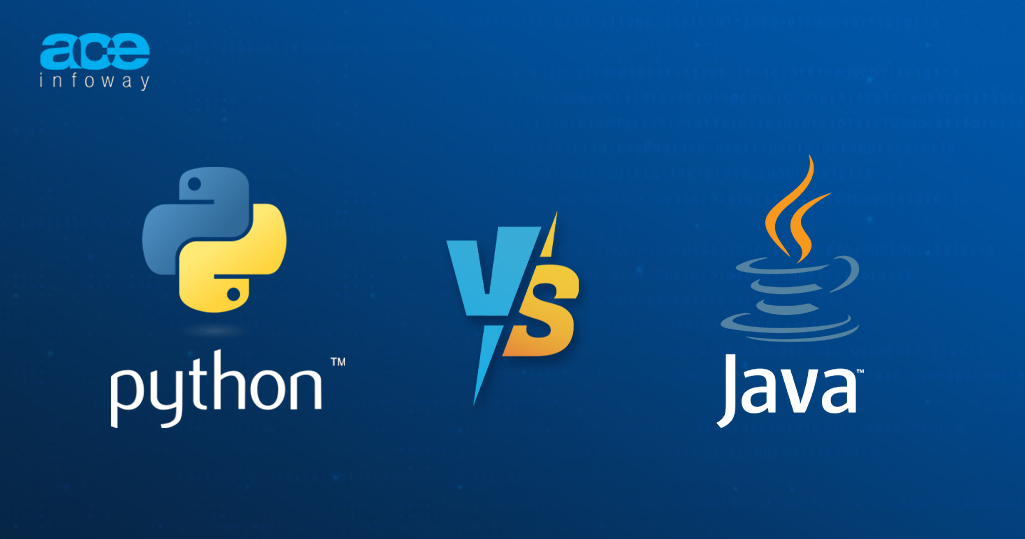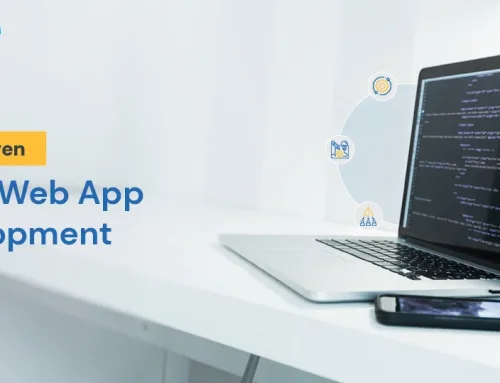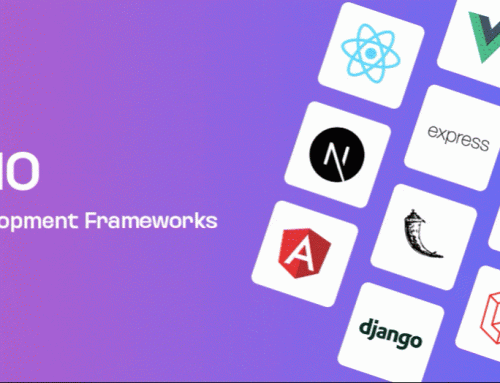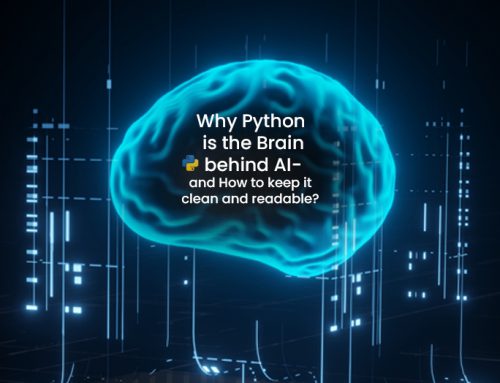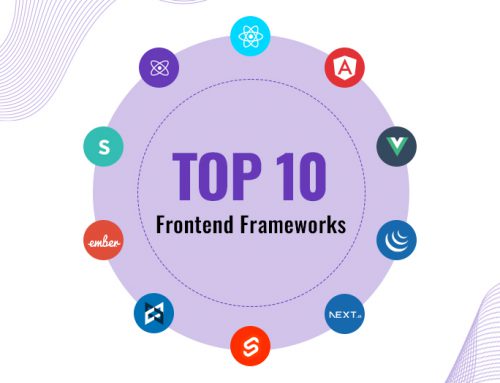Table of Contents
Behind every product delay, scaling challenge, or budget overrun is often a hidden cause – the wrong tech stack. And in most cases, it’s about the core programming language. This is where the debate of Python vs Java takes center stage.
Java and Python are often the first choices behind successful digital products, forming the backbone of modern mobile app development services.
Python has become the go-to language for data-driven applications, AI, and rapid prototyping due to its simplicity and extensive ecosystem. On the other hand, Java remains the backbone of enterprise systems, prized for its performance, security, and unmatched scalability.
The challenge is not about which language is “better.” The real question is: Which language is the right fit for your project, your team, and your plans?
Here is a breakdown of the difference between Python and Java, their advantages, speed, and performance benchmarks, and where each shines the most. By the end, you’ll have a clear perspective on whether Python or Java should drive your next project or career decision.
Let’s understand!
What is Python?

Python is a high-level, interpreted programming language created in the early 1990s by Guido van Rossum. It is designed with simplicity and readability in mind, making it one of the most beginner-friendly languages while still being powerful enough for complex applications.
The key characteristics of Python include:
- Readable and Clean Syntax: Code is written in a way that is close to natural English, reducing the learning curve.
- Interpreted Language: Python does not require compilation, which shortens development cycles.
- Cross-Platform Compatibility: Applications can run on multiple operating systems without heavy modifications.
- Extensive Libraries and Frameworks: Popular ecosystems include Django and Flask for web development, TensorFlow and PyTorch for AI/ML, and Pandas and NumPy for data analytics.
- Community Support: A vast global developer community ensures continuous updates, tutorials, and third-party tools are available.
Python has become a versatile programming language, suitable for a wide range of applications, from automation scripts to enterprise-level platforms.
Why Python Is Popular for AI, Data Science, and Startups
In recent years, Python has seen exponential growth due to its relevance in next-generation technologies. Its flexibility and library support make it the top choice for data-heavy and innovation-driven industries. Here are the reasons Python dominates AI, Data Science, and Startups:
AI and Machine Learning
- Python integrates seamlessly with TensorFlow, PyTorch, Scikit-learn, and Keras, making it the go-to for AI/ML projects.
- Supports deep learning, natural language processing, and computer vision use cases.
Data Science and Analytics
- Libraries like Pandas, NumPy, and Matplotlib enable advanced data manipulation, statistical modeling, and visualization.
- Used extensively in predictive analytics, business intelligence, and big data pipelines.
Startups and Prototyping
- Python’s faster development cycles allow startups to move from idea to prototype quickly.
- Lower development cost compared to Java because of shorter code and rapid iterations.
- Strong community support ensures access to pre-built solutions, reducing time-to-market.
Cloud and Automation
- Python is widely used in DevOps, automation scripts, and cloud-native solutions, enabling companies to optimize their operations and streamline processes.
Because of this ecosystem, Python has become the default language for innovation, while also maintaining relevance in production environments.
What is Java?

Java is a high-level, object-oriented programming language developed by Sun Microsystems in 1995 (now owned by Oracle). It was built on the principle of “write once, run anywhere”, making it one of the most portable and widely adopted programming languages in the world.
The key features of Java include:
- Object-Oriented Structure: Encourages modular, reusable, and maintainable code.
- Platform Independence: Java programs run on the Java Virtual Machine (JVM), ensuring cross-platform compatibility.
- Strongly Typed Language: Enforces strict syntax and type checking, minimizing runtime errors.
- Rich Standard Library: Offers a wide range of APIs and frameworks for networking, database connectivity, and security.
- Enterprise-Grade Scalability: Designed to handle large, complex systems with high concurrency requirements.
- Mature Ecosystem: Includes frameworks like Spring, Hibernate, and Struts for enterprise and web applications.
Java has evolved into a backbone technology for enterprise applications, banking systems, and large-scale backend services.
Advantages of Java Language in Enterprise Development
One of the main reasons enterprises continue to rely on Java is because of its stability, performance, and scalability. Unlike many newer languages, Java has a long history of powering mission-critical systems. The advantages of the Java language include:
Performance and Speed
- Compiled into bytecode that runs on the JVM, making it faster than interpreted languages like Python in most cases.
- Handles high-concurrency applications efficiently.
Security Features
- Built-in security manager and robust access control.
- Frequently updated to meet evolving security standards.
Scalability
- Supports distributed systems and multi-threaded processes.
- Ideal for enterprise software where systems must handle millions of users.
Enterprise Ecosystem
- Widely used in banking, insurance, and telecom sectors where reliability is critical.
- Backed by frameworks like Spring Boot for microservices and cloud-native architectures.
Talent and Community Support
- A large pool of experienced Java developers is available globally.
- Strong ecosystem of tools, libraries, and frameworks that reduce development effort.
When businesses invest in custom web app development services, the choice of language often determines how quickly ideas can be turned into functional products.
Is Python Easier Than Java for Beginners?
One of the most asked questions is: Is Python easier than Java? The short answer is yes, Python is considered easier to learn and use compared to Java.
Here’s why Python is easier than Java for beginners:
- Simple Syntax: Python eliminates the need for verbose declarations like Java’s class structure, making it more intuitive for first-time programmers.
- Fewer Lines of Code: Tasks that take dozens of lines in Java can often be accomplished with just a few in Python.
- Beginner-Friendly Learning Curve: Python’s readability helps new developers focus on problem-solving instead of memorizing strict syntax rules.
- Strong Learning Resources: Tutorials, documentation, and community forums are widely available.
However, there are scenarios where Java may be preferred even for beginners, when:
- Java enforces strict OOP practices, which helps developers understand foundational principles better.
- Beginners aiming for enterprise or Android development might benefit from starting with Java.
While enterprises often favor Java for large-scale systems, companies looking to innovate quickly usually hire full-stack Python developer teams to bring their ideas to market faster.
Python vs Java: A Quick Comparison
When comparing Python vs Java, it is essential to look beyond syntax and speed. The fundamental difference between Python and Java lies in how each language performs in real-world applications.
Python’s interpreted nature makes it an excellent choice for flexibility, experimentation, and handling data-heavy workloads. Java’s compiled architecture, powered by the JVM, ensures stable performance and scalability in enterprise environments.
| Factor | Python | Java |
|---|---|---|
| Execution Model | Interpreted, runs on CPython (or alternatives like PyPy) | Compiled to bytecode, runs on JVM with JIT optimization |
| Concurrency & Multithreading | Limited true multithreading due to GIL (Global Interpreter Lock). Best suited for multiprocessing or async I/O. | Strong multithreading support with native concurrency, ideal for high-load systems |
| Performance & Speed | Slower for CPU-bound tasks (AI training, large simulations) but efficient for prototyping and I/O-heavy workloads | Faster runtime and predictable performance, better for compute-intensive and real-time systems |
| Ecosystem & Frameworks | Rich ecosystem in AI/ML (TensorFlow, PyTorch, Pandas), web (Django, Flask), automation, and scripting | Mature ecosystem in enterprise (Spring, Hibernate), Android apps, backend microservices |
| Deployment | Lightweight, flexible deployment with containers (Docker, Kubernetes) | Strong enterprise deployment pipelines, JVM-based scaling, are widely used in cloud-native architectures |
| Error Handling & Debugging | Dynamic typing allows quick iteration, but runtime errors are common if not tested well | Static typing ensures compile-time error detection, reduces runtime failures in large systems |
| Scalability | Excellent for scaling data-heavy applications and rapid MVP development | Better suited for long-term scalability in distributed enterprise systems |
| Security | Python depends on third-party libraries for security. Vulnerabilities may arise if not managed | Strong security features in JVM, robust access control, widely trusted in finance and enterprise |
| Cross-Platform Support | Runs wherever an interpreter is available, with strong support for automation across OS | “Write once, run anywhere” with JVM. Stronger enterprise-grade cross-platform reliability |
| Mobile Development | Limited direct usage (via Kivy, BeeWare, but not mainstream) | Backbone of Android app development with native performance |
| Cloud & Enterprise Integration | Well-suited for serverless, APIs, microservices, and AI-driven SaaS platforms | Deep integration with enterprise stacks, ERP, CRM, legacy modernization, and mission-critical systems |
| Best Use Cases | AI/ML apps, data pipelines, automation scripts, SaaS prototypes, startups | Enterprise-grade applications, fintech, telecom, ecommerce platforms, Android apps |
- Execution Model: Python is interpreted, which makes debugging easier and speeds up development cycles, but Java’s compiled bytecode runs faster at scale.
- Concurrency: Python struggles with true multithreading due to the GIL, but shines in async I/O tasks. Java, however, handles multithreading natively, making it more suitable for high-performance systems.
- Performance: Python is slower for CPU-intensive workloads but highly efficient in rapid development. Java wins when performance and speed are non-negotiable.
- Ecosystem: Python has unmatched advantages in AI, data science, and automation. Java dominates in enterprise-grade applications, Android, and mission-critical systems.
- Deployment: Python works well with containerized deployments for SaaS startups, while Java integrates seamlessly into enterprise DevOps pipelines.
- Scalability: Both scale, but in different ways. Python supports scaling fast for prototypes and SaaS apps, while Java is better for long-term enterprise scalability.
- Security: Java offers stronger built-in security features at the JVM level, whereas Python’s security depends more on third-party libraries and frameworks.
Why Java Is Still Trusted for Scalable Applications
Despite the rise of newer languages, Java continues to dominate enterprise environments. Its ability to handle large-scale, complex, and distributed systems makes it the top choice for organizations where uptime and performance cannot be compromised.
Check out these use cases that highlight Java’s scalability:
- Banking and Financial Systems – Java best handles high transaction throughput and strict security requirements.
- Enterprise Resource Planning (ERP) and CRM Solutions – Java’s modular design supports customization and large-scale deployment.
- Telecom and Networking Applications -Handles concurrency and heavy data exchange efficiently.
- Android App Development -Java remains the core language for native Android applications.
If your business requires long-term scalability, enterprise-grade security, and consistent performance, the more intelligent choice is often to hire Java developer experts who can build systems that last.
Python vs Java: Best Use Cases for Each Language
Choosing between Python and Java often comes down to the type of application you want to build. Both are powerful, but they shine in different scenarios. Python is widely adopted for innovation-driven projects, including artificial intelligence, automation, and data-intensive solutions. Java, on the other hand, has long been the backbone of enterprise-grade systems, banking platforms, and mobile applications.
Use Cases Where Python Excels
Python is often the first choice for projects that require agility, experimentation, and fast delivery. With its simple syntax and a massive ecosystem of libraries, it allows teams to focus more on solving business problems than wrestling with boilerplate code. The key areas where Python leads:
| Application Type | Why Python Works Best |
|---|---|
| AI & Machine Learning | Rich libraries and community support |
| Data Science | Efficient data handling and visualization |
| Automation | Lightweight scripting with minimal setup |
| Web Development | Rapid development using Django/Flask |
| Prototyping | Fast iteration and deployment |
Use Cases Where Java Leads
Java remains the go-to language for large-scale, performance-intensive, and long-term systems. Its robust architecture, mature libraries, and JVM-based performance make it ideal for mission-critical applications. Enterprises trust Java because it has proven stability and scalability across decades.
| Application Type | Why Java Works Best |
|---|---|
| Enterprise Systems | Security and scalability at scale |
| Mobile (Android) Apps | Native performance and ecosystem support |
| Fintech & Ecommerce | Handles millions of transactions efficiently |
| Cloud-Native Services | Mature integration with cloud platforms |
| Legacy Modernization | Proven stability for long-term projects |
Java vs Python: Which Should Your Business Choose?
Ultimately, the choice between Java and Python depends on what your business aims to achieve. Both languages are powerful, trusted, and backed by strong communities, but they serve different goals.
If your focus is on innovation, AI, data-heavy applications, automation, or building a quick MVP, then Python is often the more intelligent choice. Its simplicity and flexibility enable teams to move quickly and bring ideas to life without overcomplicating the process.
If your goal is to build large, secure, and long-term enterprise systems, financial platforms, Android apps, or highly scalable products, then Java remains the more reliable option. Its performance and stability have made it the backbone of enterprise technology for decades.
In simple words:
- Python helps businesses innovate and experiment faster.
- Java allows companies to remain stable and scale more effectively.
The real success lies in aligning the language with your project’s vision, timeline, and future growth. Some companies even use both Python and Java together, combining the strengths of each.
No matter which one you choose, understanding the difference between Python and Java ensures your investment in technology creates lasting value for your business.
Build Your Next App with Ace Infoway
Choosing between Java and Python is only the first step in building a successful digital product. What really makes the difference is having the right technology partner who can translate that choice into a scalable, user-friendly, and future-ready application.
Ace Infoway specializes in end-to-end mobile app development services that bring your vision to life. Whether your project needs the stability for enterprise-grade systems or the flexibility for AI-driven innovation, contact us to design, develop, and deploy apps that deliver real business impact.
FAQs
- What mobile app development services do you offer?
We provide end-to-end mobile app development services, including custom app design, development for iOS and Android, backend integration, cloud deployment, and app maintenance. Our team works with both Java and Python to deliver apps that are scalable, secure, and user-friendly.
- How long does it take to build a mobile app?
The timeline depends on the app’s complexity, features, and technology stack. A simple app can take 4–8 weeks, while more complex projects like enterprise or AI-powered apps may take 3–6 months. We ensure timely delivery without compromising quality.
- Can you develop both iOS and Android apps?
Yes. Our mobile app development services cover iOS, Android, and cross-platform solutions, ensuring your app reaches users on all significant devices efficiently.
- Should I choose Java or Python for my app?
It depends on your project. Python is ideal for AI, data-driven apps, and rapid prototyping. Java is better for large-scale enterprise apps, Android, and high-performance systems. Our experts guide you in choosing the right technology.
- Can you help with app maintenance and updates?
Absolutely. We provide ongoing mobile app maintenance services, including performance monitoring, security updates, feature enhancements, and bug fixes to keep your app running smoothly.
- Do you offer custom app development for startups and enterprises?
Yes. We specialize in custom mobile app development services tailored for startups, SMEs, and large enterprises. Our solutions align with your business goals, budget, and timeline.
- How much do your mobile app development services cost?
Cost depends on the app’s features, complexity, and technology. We provide transparent quotes after understanding your requirements, ensuring you get the best value for your investment.
- Will my app be scalable for future growth?
Yes. All apps we develop are scalable and future-ready, whether built in Python or Java. We design architectures that can handle more users, data, and integrations as your business grows.
- Can you integrate third-party tools and APIs into my app?
Definitely, our team can integrate payment gateways, analytics tools, CRMs, social platforms, and more into your mobile app for a seamless user experience.
- How do I get started with your mobile app development services?
You can reach out to us with your app idea. We’ll assess your requirements, suggest the right technology stack, and provide a clear plan for design, development, and deployment.









